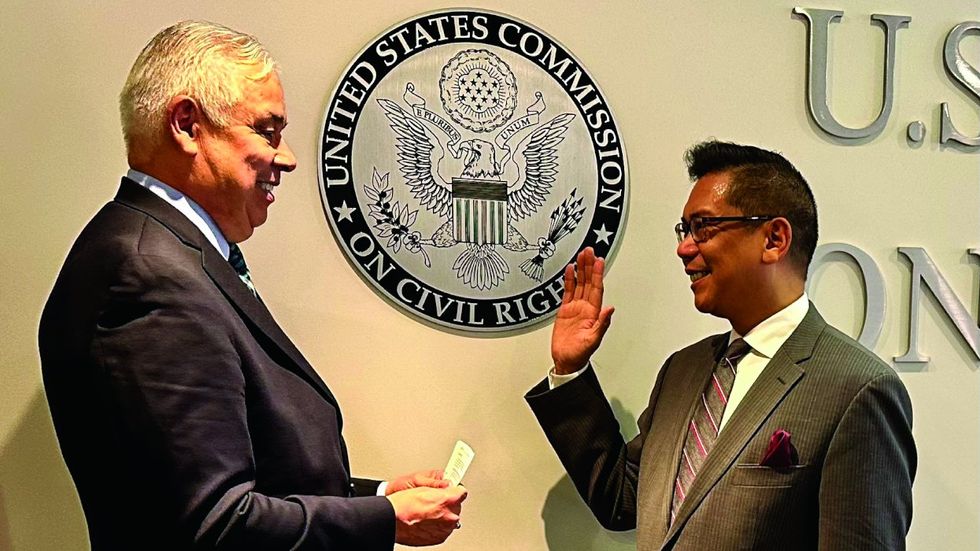Asian-Americans
Glenn Magpantay Is One of the Most Powerful Asian American Gay Men in the Nation
Glenn Magpantay Is One of the Most Powerful Asian American Gay Men in the Nation

Glenn Magpantay (right) is sworn in to the U.S. Commission on Civil Rights by director Mauro Morales
Now advising President Biden and Congress, Magpantay is helping America live up to its promise.

Neal Broverman
Neal Broverman is the Editorial Director, Print of Pride Media, publishers of The Advocate, Out, Out Traveler, and Plus, spending more than 20 years in journalism. He indulges his interest in transportation and urban planning with regular contributions to Los Angeles magazine, and his work has also appeared in the Los Angeles Times and USA Today. He lives in the City of Angels with his husband, children, and their chiweenie.
Neal Broverman is the Editorial Director, Print of Pride Media, publishers of The Advocate, Out, Out Traveler, and Plus, spending more than 20 years in journalism. He indulges his interest in transportation and urban planning with regular contributions to Los Angeles magazine, and his work has also appeared in the Los Angeles Times and USA Today. He lives in the City of Angels with his husband, children, and their chiweenie.
May 17 2023 6:20 PM EST
May 31 2023 2:42 PM EST
Nbroverman

















































































